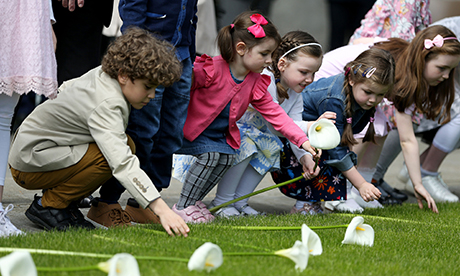Irish Prime Minister Leo Varadkar acknowledged defeat as two proposed constitutional amendments on the family and care agenda were on course for rejection.
Voters rejected the amendments which aimed to redefine family structures and address outdated language regarding women’s roles in the home.
Despite Varadkar’s advocacy for updating the constitution to reflect modern societal norms and gender equality, the electorate’s sentiment proved otherwise.
“Clearly, we got it wrong” Varadkar conceded, acknowledging widespread disappointment with the proposed changes.
Women in the home
The proposed amendments sought to redefine the family unit, allowing it to be based on marriage or other durable relationships. They also removed language implying a woman’s primary role in the home and emphasised state support for caregiving within families.
The change was pushed not only by the government but also by the vast majority of opposition parties. However the amendments were defeated, with over 65 percent voting ‘No’.
The rejection of the amendments signifies a significant moment in Ireland’s ongoing transition from a traditionally conservative Catholic nation to a more socially liberal society.
Over the years, Ireland has witnessed substantial constitutional reforms including legalising divorce in 1995, approving same-sex marriage in 2015 and repealing the ban on abortions in 2018.
Confusion
Despite initial polling indicating support for the amendments, many voters remained undecided as the vote approached.
Concerns were raised about ambiguity and potential negative implications, with some expressing confusion over the proposed changes.
“I thought it was too rushed” said Una Ui Dhuinn, a nurse in Dublin. “I felt we didn’t get enough time to think about it and read up on it. So I felt, to be on the safe side, ‘no, no’ — no change.”
Caoimhe Doyle, a doctoral student, said she voted yes to changing the definition of family but no to the care amendment because “I don’t think it was explained very well.”
“There’s a worry there that they’re removing the burden on the state to take care of families” she said.
Irish bishops concerned
The Irish bishops expressed reservations about the proposed amendments, emphasising the unique importance of the relationship between marriage, family and societal values. They stressed the need to preserve mothers’ distinct roles and contributions while acknowledging the evolving dynamics of family life in contemporary Ireland.
Sources
Additional readingNews category: Great reads, World.




